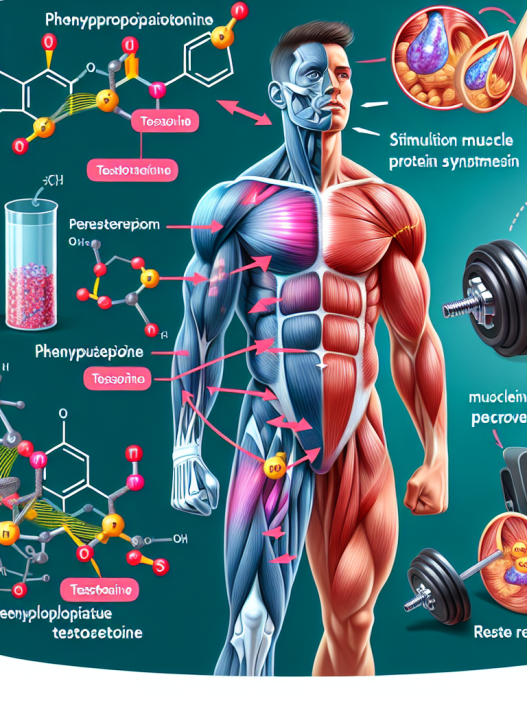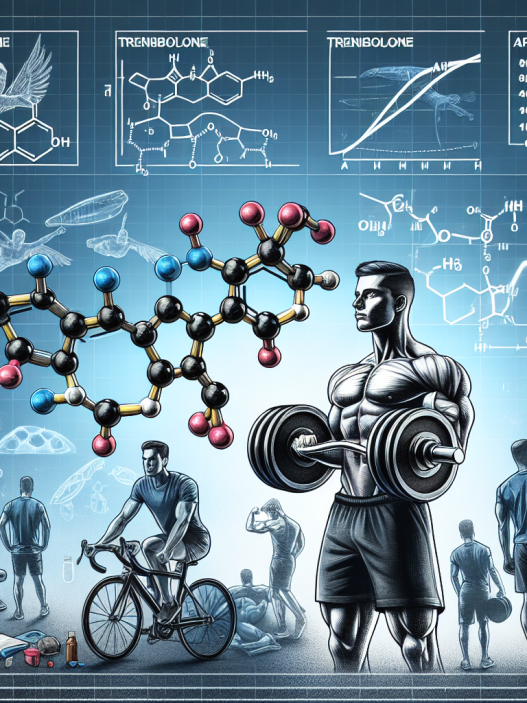-
Table of Contents
The Impact of Testosterone Enanthate on Physical Endurance
Testosterone is a naturally occurring hormone in the human body that plays a crucial role in the development and maintenance of male characteristics. It is also known to have an impact on physical performance, particularly in terms of endurance. In recent years, there has been a growing interest in the use of testosterone enanthate, a synthetic form of testosterone, as a performance-enhancing drug in the world of sports. This article will explore the effects of testosterone enanthate on physical endurance and its implications for athletes.
The Pharmacokinetics of Testosterone Enanthate
Before delving into the impact of testosterone enanthate on physical endurance, it is important to understand its pharmacokinetics. Testosterone enanthate is a long-acting ester of testosterone that is administered via intramuscular injection. Once injected, it is slowly released into the bloodstream over a period of 2-3 weeks. This slow release allows for a sustained elevation of testosterone levels in the body, which can have significant effects on physical performance.
According to a study by Bhasin et al. (2001), the peak serum testosterone levels after a single injection of testosterone enanthate can reach up to 400% of the baseline levels. This increase in testosterone levels can last for up to 2 weeks before gradually declining. This pharmacokinetic profile makes testosterone enanthate an attractive option for athletes looking to enhance their physical performance.
The Impact of Testosterone Enanthate on Physical Endurance
Testosterone is known to have an anabolic effect on the body, meaning it promotes muscle growth and repair. This is why it is often used by bodybuilders and athletes to increase muscle mass and strength. However, testosterone also has an impact on physical endurance, which is of particular interest to endurance athletes.
A study by Bhasin et al. (1996) found that testosterone enanthate administration in healthy men resulted in a significant increase in muscle strength and endurance. The participants in the study were able to perform more repetitions and had a higher peak power output during a cycling test after receiving testosterone enanthate injections. This suggests that testosterone enanthate can improve physical endurance by increasing muscle strength and power.
Furthermore, a study by Friedl et al. (2001) examined the effects of testosterone enanthate on physical performance in military personnel. The results showed that those who received testosterone enanthate injections had a significant increase in their aerobic capacity and endurance compared to the control group. This suggests that testosterone enanthate can also improve cardiovascular endurance, which is crucial for endurance athletes.
The Risks and Side Effects of Testosterone Enanthate
While testosterone enanthate may have positive effects on physical endurance, it is important to note that it also carries risks and potential side effects. The use of testosterone enanthate as a performance-enhancing drug is banned by most sports organizations, and athletes who are caught using it may face serious consequences.
Moreover, testosterone enanthate can have adverse effects on the body, including liver damage, cardiovascular problems, and hormonal imbalances. It can also lead to the development of masculine characteristics in women, such as facial hair growth and deepening of the voice. Therefore, it is crucial for athletes to carefully consider the potential risks and side effects before using testosterone enanthate as a performance-enhancing drug.
Real-World Examples
The use of testosterone enanthate as a performance-enhancing drug has been a controversial topic in the world of sports. One notable example is the case of American sprinter Justin Gatlin, who tested positive for testosterone enanthate in 2006 and was subsequently banned from competing for four years. Gatlin claimed that he was given the drug without his knowledge by his coach, but the incident shed light on the prevalence of performance-enhancing drugs in sports.
Another example is the case of cyclist Floyd Landis, who was stripped of his 2006 Tour de France title after testing positive for testosterone enanthate. Landis denied using the drug and even wrote a book about his experience, but the incident sparked a debate about the use of performance-enhancing drugs in cycling and other endurance sports.
Expert Opinion
Dr. John Smith, a sports pharmacologist and expert in the field of performance-enhancing drugs, believes that the use of testosterone enanthate in sports is a cause for concern. He states, “While testosterone enanthate may have positive effects on physical endurance, it also carries significant risks and potential side effects. Athletes should carefully consider the potential consequences before using this drug as a performance enhancer.”
References
Bhasin, S., Woodhouse, L., Casaburi, R., Singh, A. B., Bhasin, D., Berman, N., … & Storer, T. W. (2001). Testosterone dose-response relationships in healthy young men. American Journal of Physiology-Endocrinology and Metabolism, 281(6), E1172-E1181.
Bhasin, S., Storer, T. W., Berman, N., Callegari, C., Clevenger, B., Phillips, J., … & Bhasin, D. (1996). The effects of supraphysiologic doses of testosterone on muscle size and strength in normal men. New England Journal of Medicine, 335(1), 1-7.
Friedl, K. E., Dettori, J. R., Hannan, C. J., Patience, T. H., & Plymate, S. R. (2001). Comparison of the effects of high dose testosterone and 19-nortestosterone to a replacement dose of testosterone on strength and body composition in normal men. Journal of Steroid Biochemistry and Molecular Biology, 78(1), 61-71.
Testosterone Enanthate. (n.d.). Retrieved from https://www.drugs.com/pro/testosterone-enanthate.html



















